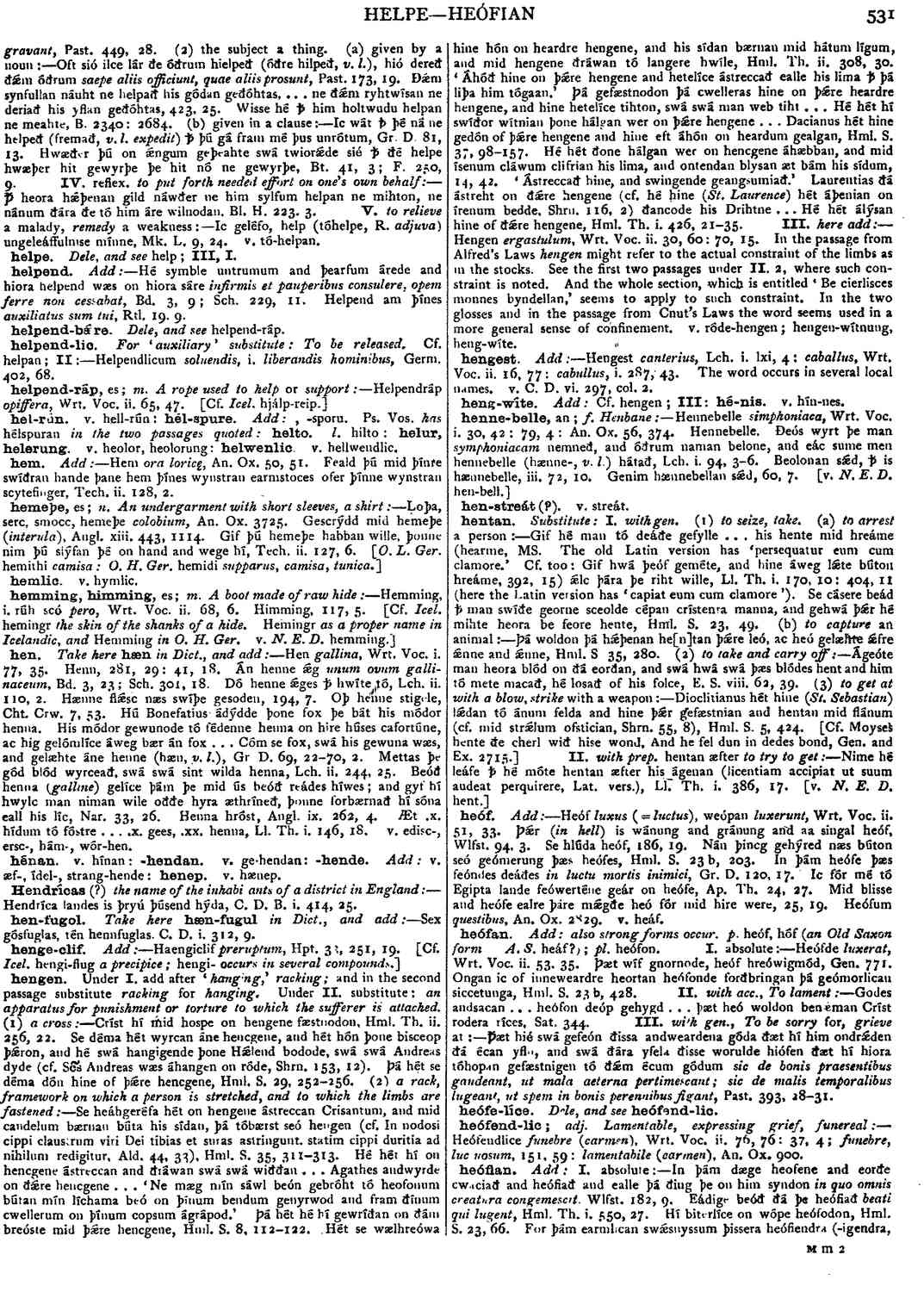hentan
-
Gif hé man tó deáðe gefylle . . . his hente mid hreáme (hearme, MS.
The old Latin version has 'persequatur eum cum clamore.'
Cf. too: Gif hwá þeóf geméte, and hine áweg lǽte búton hreáme,
- 392, 15 )
ǽlc þára þe riht wille,
- Ll. Th. i. 170, 10 :
- 404, II
(here the Latin version has 'capiat eum cum clamore').
Se cásere beád þ man swíðe georne sceolde cépan crístenra manna, and gehwá þǽr hé mihte heora be feore hente
- Hml. S. 23, 49.
-
Þá woldon þá hǽþenan he[n]tan þǽre leó, ac heó gelælite ǽfre ǽnne and æune,
- Hml. S 35, 280 .
-
Ágeóte man heora blód on ðá eorðan, and swá hwá swá þæs blódes hent and him tó mete macað, hé losað of his folce,
- E. S. viii. 62, 39 .
-
Dioclitianus hét hine
(St. Sebastian)
lǽdan tó ánum felda and hine þǽr gefæstnian and hentan mid flánum (cf. mid strǽlum ofstician,
- Shrn. 55, 8 ),
- Hml. S. 5, 424 .
-
[Cf. Moyses hente ðe cherl wið hise wond. And he fel dun in dedes bond,
- Gen. and Ex. 2715.]
-
Nime hé leáfe ꝥ hé móte hentan æfter his ágenan
(licentiam accipiat ut suum audeat perquirere, Lat. vers.),
- Ll. Th. i. 386, 17 .
Bosworth, Joseph. “hentan.” In An Anglo-Saxon Dictionary Online, edited by Thomas Northcote Toller, Christ Sean, and Ondřej Tichy. Prague: Faculty of Arts, Charles University, 2014. https://bosworthtoller.com/52270.
Checked: 1